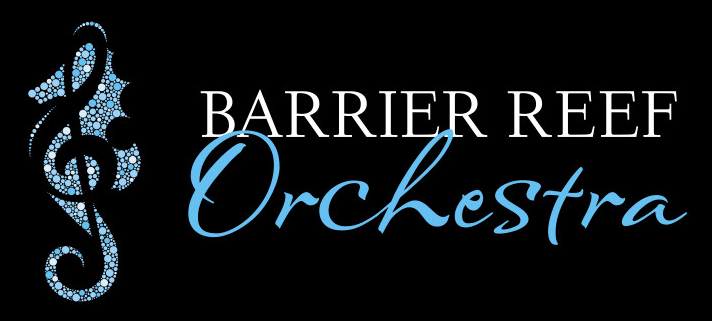Review: Tchaikovsky on 14th July 2019
It is a testament to the quality and ever-increasing reputation of Townsville’s Barrier Reef Orchestra that it continues to attract such a range or international conductors to lead it, and word has it that that there is a queue of conductors registering their interest to perform here.
This time the ensemble was under the baton of exacting English conductor Dr Mark Eager, former BBC National Orchestra of Wales principal trombone and now principal conductor for the BBC Ariel Orchestra in London. Under his leadership the sympathetic acoustics of the venue once again lent themselves commendably to the 60-strong orchestra, comprising musicians from Townsville and augmented with visitors from Brisbane, Toowoomba, Gold Coast, NSW, Victoria and New Zealand.
Entitled Tchaikovsky, the concert centred around a performance of Tchaikovsky’s Symphony No. 4 in F minor, Op. 36, and was complemented admirably by the two preceding pieces, which effectively highlighted (or presented in relief) the various aspects of the symphony.
The concert began with Fanfare from La Peri composed by Paul Dukas – last piece written for a one-act ballet which premiered in Paris in 1912. The piece is standard fare at the beginning of brass ensemble concerts, and this performance clearly highlighted the abilities of the musicians of the 12-strong brass section.
The second piece which was performed was possibly a premier Australian performance – Nocturne by Morfydd Llwyn Owen (1891-1918), a prolific young Welsh composer who tragically died before her true potential could be explored. As conductor Eager pointed out, the simplistic piece could be criticised for its naivete, but probably only because of its comparatively unsophisticated orchestration. (It would be interesting to see the piece develop with further orchestration.) Under Eager’s sympathetic baton the delicacy of the composition and its romantic elements were clearly defined – with some well-defined solo work from a variety of instruments. The piece reminded me strongly of the orchestral work of Richard Rodgers in the 1940s – overtures from Carousel, Allegro and South Pacific sprang to mind.
The centrepiece was Tchaikovsky’s Symphony No. 4 in F minor, Op. 36, written between 1877 and 1878. Sometimes nicknamed Tchaikovsky’s “Fate” symphony, it is certainly not one of the Russian maestro’s most renowned works, but seeing it being performed really gives the audience an opportunity to experience the different sections of the ensemble at work, and how the composer effectively used the various sections of the orchestra.
Tchaikovsky’s works always seem to characterise the passion of the Russian soul and conjures images of the vast and diverse Russian landscape. To interpret these enormous musical canvases there is normally a particularly large orchestra. However, this performance – by a much smaller orchestra than I had in my imagination – certainly placed that preconception firmly where it belonged.
At 20 minutes, the first movement is one of Tchaikovsky’s longest symphonic movements, and Eager certainly put the orchestra through its paces in this demanding section.
The forlorn oboe melody of the second movement featured excellent work from guest oboeist, Bernie Girard. The third somewhat delicate, quiet pizzicato movement showed the strings to great advantage, joined by brass and woodwinds (no percussion).
After the quiet ending of the third movement, the vigorous fourth movement opened with a clash of cymbals, and there was remarkable work in this movement from four woodwind soloists: Mia Yoo (flute), Bernie Girard (oboe), Jacinta Payne (clarinet) and Helen Land (bassoon).
After much applause, the orchestra played an encore of the last section of the fourth movement.
The entire symphony – particularly the last movement – clearly demonstrated conductor Eager’s clarity of interpretation, delivering a distinctive crispness in delivery. His was an understated and intelligent interpretation, showing familiarity of the complementary natures of the three pieces as well as an understanding of what is required to bring out the best from the Barrier Reef Orchestra.
Trevor Keeling [This Review also appeared in Stage Whispers]
